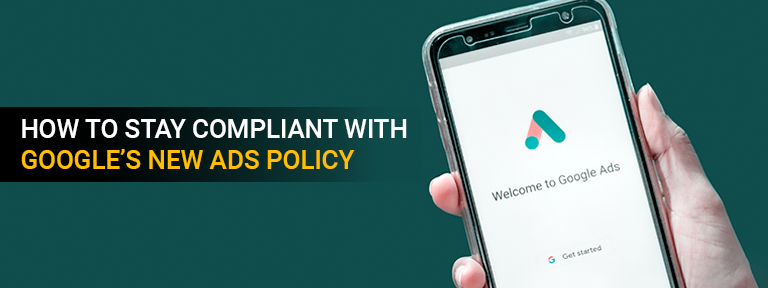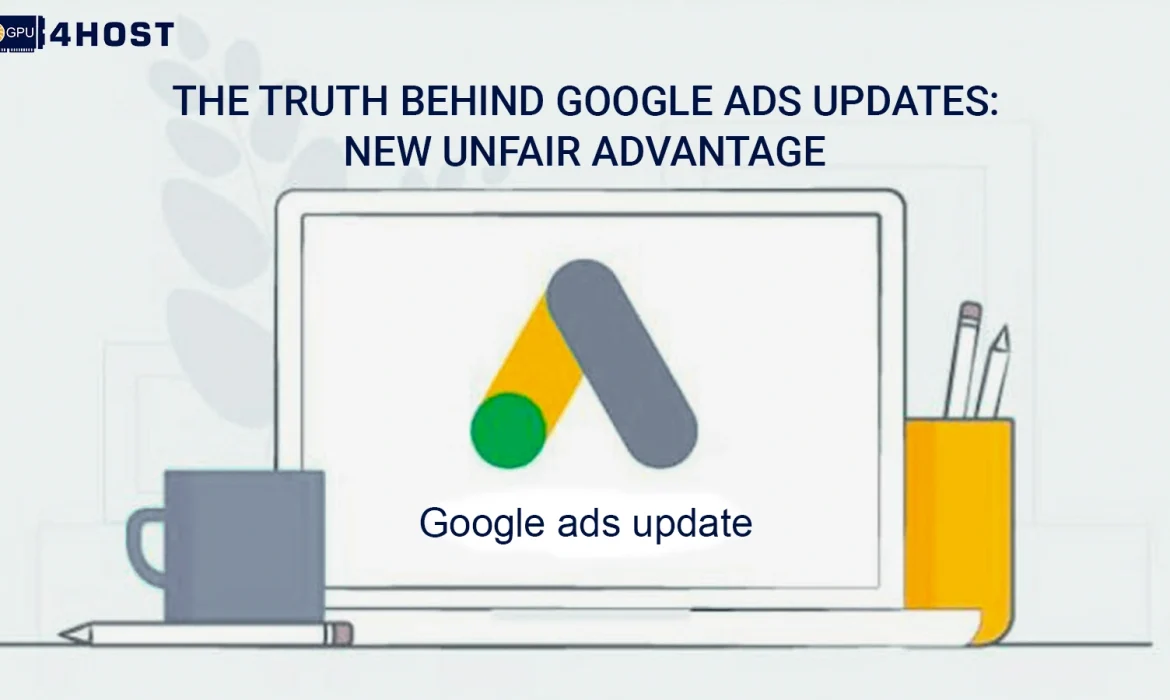Google Ads Updates
The Truth Behind Google Ads Updates: New Unfair Advantage
Google Ads updates have, at present, made noteworthy headlines under the Unfair Advantage Policy on the Google Ads platform, creating a small wave across the modern advertising era. It doesn’t matter if you are a marketer handling a Google Ads account, a business managing processes with the help of Google Ads Manager, or a tech expert company like GPU4HOST providing specialized services such as a GPU dedicated server and GPU hosting; this policy change is something that you can’t easily afford to ignore.
In this guide, we’ll completely break down what these new Google Ads updates refer to, how they might impact your campaigns, and how organizations in the high-performance computing (HPC) niche—mainly those providing NVIDIA A100, V100, and GPU cluster solutions—can remain adaptable and competitive.
What is Google’s New Unfair Advantage Policy?
Google’s Unfair Advantage Policy is engineered to have proper transparency across the advertising environment. The main idea is to stop advertisers from controlling the whole system or getting extreme advantages that give them an unfair benefit over all others.
This includes practices like:
- Cloaking (showing diverse content to both users and Google)
- Keyword manipulation or stuffing
- Creating many accounts to just show more advertisements than allowed
- Utilizing malicious methods to increase visibility
With the help of the latest Google Ads updates, Google has simply doubled down on imposing this policy, leaving no room for deceptive tactics.
What’s New in the Google Ads Updates Policy?
Google has launched the following essential changes:
1. Stricter Restrictions on Multiple Account Strategy
Advertisers utilizing more than one Google Ads account to rule advertisement placements may now face any type of penalty or account suspension. While handling many accounts is still allowed for valid business reasons (for example, agencies or multi-brand companies), utilizing them to unfairly boost impressions or control auctions breaches the policy.
Well-known tech companies such as GPU4HOST that handle different segments (for instance, GPU server, cloud GPUs, and dedicated AI compute) must guarantee a clear separation between all accounts to stay compliant with the recent Google Ads updates.
2. AI-Generated & Misleading Content Under Scrutiny
With AI-based content becoming more widespread, Google now inspects ad copy and landing pages developed by artificial intelligence for precision and transparency. Confusing headlines or content that overpromises and fails to meet expectations could be indicated.
For instance, if you are advertising GPU hosting, you must make sure that every claim (e.g., performance benchmarks or pricing) is genuine and flawlessly verifiable.
3. Transparent Domain Ownership
The policy now highlights complete transparency related to domain ownership. If any business advertises GPU hosting but redirects all users to another brand or third-party service provider, Google may host the campaign as misleading unless the connection is specified. This transparency is an essential part of the Google Ads updates to safeguard users from getting the wrong information.
4. Improved Detection of Circumvention Techniques
Google has optimized its detection systems to use tactics such as redirect chains, IP cloaking, and domain change—general workarounds are utilized to improve visibility while hiding all genuine sources of ads.
This refers to those tech firms utilizing advanced ad strategies for various products, such as a GPU dedicated server or NVIDIA-based cloud computing, which must now guarantee proper policy alignment at every stage.
Why This Update Matters for GPU4HOST & Similar Tech Brands
For all popular tech brands like GPU4HOST, which works in highly competitive niches providing enterprise-level infrastructure (e.g., a GPU server, GPU-powered hosting, and AI/ML-based NVIDIA A100 GPU clusters), the stakes are generally high. A suspended ad account can lead to:
- Loss of organic leads and product sales
- Unexpected downtime in campaign performance
- Brand status damage
False product specifications or utilizing overly hostile tactics to surpass competitors can now face penalties or even account suspensions. The Google Ads updates fortify the significance of transparency, compliance, and genuine advertising.
How to Stay Compliant with Google’s New Ads Policy

Check Your Google Ads Account(s)
Perform a complete review of your Google Ads accounts. Make sure that every one of them serves a unique and genuine business aim. If you’re a reseller or an agency of GPU servers, make sure your account structure shows that role properly.
Utilize Google Ads Manager Appropriately
If you’re handling many accounts with the help of Google Ads Manager, be completely transparent with account associations. Stop utilizing it to rule at auctions.
Keep Landing Pages Transparent & Clear
Suppose you’re simply promoting NVIDIA A100 or a cutting-edge GPU server; make sure your landing pages:
- Properly explain the service
- Include real pricing or specifications
- Prevent clickbait or overstated performance claims
Ethically Use First-Party Data
Google remains supportive of privacy-based strategies. Utilize first-party customer information to customize ads—but make sure your data gathering and utilization practices are clear and consent-based.
Google’s Point of View: Leveling the Playing Field

From Google’s perspective, this new policy update isn’t all about restricting advertisers—it’s mainly about safeguarding user trust and making sure that every competitor competes transparently. In hyper-niche spaces such as AI-based infrastructure, GPU hosting, and a GPU dedicated server, this helps to have proper credibility.
What to Watch for Next
Google may remain limited in its ad policies throughout the year 2025, mainly as AI-based content, deepfake technologies, and automated ad optimization tools are now becoming more general.
If your business centers around modern technologies such as GPU4HOST’s NVIDIA-based GPU clusters, staying knowledgeable and dynamic will be essential to maintaining your Google Ads account in good standing.
Conclusion
The new Google Ads updates basically refer to the Unfair Advantage Policy, which is a prompt reminder to compete by the rules and to update your ad strategy in a way that gives real value to genuine users.
For well-regarded hosting service providers like GPU4HOST, this means
- Running truthful, data-powered campaigns.
- Displaying product specifications (e.g., a GPU server, NVIDIA A100, or a GPU dedicated server) with full transparency.
- Using Google Ads Manager as a reliable tool for smart adjustment, not system gaming.
By aligning with newly launched policies, you’re not only avoiding unnecessary penalties—you’re developing a long-term foundation for success, credibility, and client trust in the competitive era of cloud computing and GPU server hosting.
FAQ
- What is Google Ads?
Google Ads is basically a digital advertising platform powered by Google where all businesses pay some amount to run ads on Google Search, YouTube, and some other legal partner sites.
- What is Google Ads Update?
Google Ads updates are daily changes created by Google to boost ad performance, strategies, targeting, automation, and agreement.
- How to remove Google Ads?
You can’t completely remove Google Ads from sites unless you utilize an ad blocker or subscribe to any ad-free services where possible.
- How can I stop ads by Google?
Simply go to Google Ad settings and turn off customized ads. Utilize ad blockers for more control.
- How to set up Google Ads?
Just sign in at ads.google.com, make a campaign, select your target audience, set a specific budget, write your advertisement, and then launch.
- How to create Google Ads?
In the case of Google Ads Manager, just simply click on “+ New Campaign,” choose your goal, set specific targeting, write ad copy, add valid keywords, and publish the advertisement.


